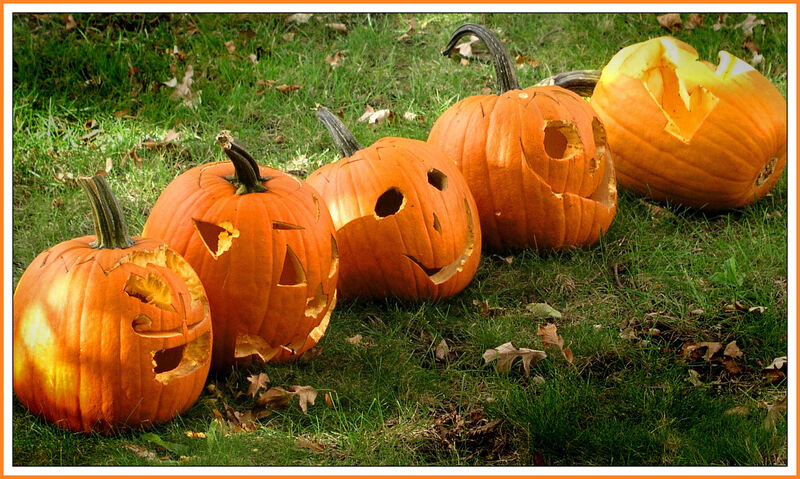Expert Strategies for Home Carpet and Hard Flooring Cleaning
Posted on 02/10/2025
Expert Strategies for Home Carpet and Hard Flooring Cleaning
Keeping your floors spotless is more than just a matter of aesthetics; it significantly impacts your home's hygiene and the lifespan of your surfaces. Whether you have plush carpets or sleek hard flooring, adopting expert strategies for cleaning ensures that your floors remain both beautiful and healthy. In this comprehensive guide, we'll uncover proven methods for cleaning and maintaining carpets and hard floors at home, share professional tips, and answer the most common questions homeowners have.
Why Regular and Expert Floor Cleaning Matters
Many people underestimate the importance of professional-level floor cleaning routines. In reality, regular cleaning prevents dangerous allergens, stubborn stains, odours, and even irreversible floor damage. Let's consider the key benefits:
- Improved air quality by removing dust, mold, and pet dander.
- Enhanced flooring durability - well-maintained carpets and floors last longer.
- Brighter and more attractive home, making spaces feel larger and more welcoming.
- Cost savings by reducing the need for early replacements or expensive repairs.

How to Clean Carpets Like a Professional
1. Understand Your Carpet Type
Every carpet material--be it wool, nylon, polyester, or a blend--requires its own cleaning approach. Identify your carpet's fiber and refer to the manufacturer's care instructions before using any new method or product.
2. Essential Tools and Products for Deep Carpet Cleaning
- High-quality vacuum cleaner with HEPA filter
- Carpet shampooer or steam cleaner
- Carpet stain remover for spot treatments
- Soft-bristle brush for agitation
- Microfiber towels for blotting
- Baking soda and white vinegar for natural cleaning solutions
3. Step-By-Step Expert Carpet Cleaning Strategy
- Vacuum Thoroughly: Start with slow, overlapping passes to lift embedded dirt. Don't forget baseboards and edges.
- Spot Treat Stains: Blot, don't rub! Apply a targeted carpet stain remover and gently blot using a microfiber cloth. Use a soft brush for tougher spots if needed.
- Deep Clean with a Carpet Cleaner: Use a carpet shampoo machine or a professional-grade steam cleaner. Follow the manufacturer's instructions for water temperature and detergent ratio.
- Rinse and Extract: If using a shampooer, make a final pass with water only to extract soap residue which attracts future dirt.
- Dry Completely: Open windows, set up fans, or use a dehumidifier. Avoid walking on wet carpets until fully dry to prevent new stains and mold growth.
- Deodorize: Sprinkle baking soda, let it sit for at least 15 minutes, and vacuum thoroughly for fresh-smelling carpets.
4. Pro Tips for Ongoing Carpet Maintenance
- Shoe-free zones: Encourage family and guests to remove shoes before entering carpeted areas.
- Immediate spot cleaning: Address spills right away using a clean, white cloth and specialized cleaner.
- Routine vacuuming: High-traffic areas may require vacuuming 2-3 times per week.
- Annual deep cleaning: Schedule professional cleaning or DIY deep cleaning every 12 months.
- Use area rugs: Protect carpets in entryways and under heavy furniture.
Proven Techniques for Hard Flooring Cleaning
Hard flooring--including hardwood, laminate, tile, vinyl, and natural stone--requires special care to preserve its finish and strength. Here's how to clean and protect each type effectively.
1. Basic Supplies for Hard Floor Cleaning
- Microfiber mop or dust mop
- Broom and dustpan
- pH-neutral floor cleaner
- Bucket and clean water
- Soft towels for drying
- Specialized cleaners for stone, tile, or hardwood if needed
2. Cleaning Hardwood Floors the Expert Way
- Dust or Sweep: Use a soft-bristle broom or microfiber dust mop to remove grit and dust daily.
- Damp Mop: Wring out the mop thoroughly--excess water can damage wood! Use a diluted, pH-neutral cleaner. Mop in the direction of the wood grain.
- Dry Immediately: After mopping, dry the floor with a clean towel to prevent water spots or damage.
- Spot Treat: For tough stains (e.g., pet accidents), use a hardwood-approved stain remover sparingly.
- Polish and Protect: Every 2-4 months, apply a wood polish to restore shine and shield against wear and tear.
3. Advanced Tile and Grout Cleaning Tips
- Regular dusting: Begin with a dry mop to remove debris that could scratch your tiles.
- Mop with a mild cleaner: Mix warm water with a few drops of a suitable tile cleaner. Rinse thoroughly to eliminate soap residue.
- Tackle grout stains: Make a paste of baking soda and water. Apply to grout lines, let sit, then scrub with a toothbrush and rinse.
- Disinfect and deodorize: Use a vinegar solution for ceramic or porcelain (avoid vinegar on stone!) to kill germs.
- Seal tile and grout lines: Every 1-2 years, apply a tile and grout sealer to prevent staining and mildew.
4. Caring for Vinyl, Laminate, and Stone Floors
Different hard flooring options need specific attention:
- Vinyl: Sweep daily. Damp mop with a mild detergent and avoid abrasive scrubbing pads.
- Laminate: Use a barely damp microfiber mop. Too much water can cause swelling and warping. Avoid wax and oil-based cleaners.
- Stone (marble, granite, slate): Sweep regularly. Use a cleaner made for natural stone. Never use vinegar, lemon, or acidic solutions, which can etch surfaces.
Best Professional Secrets for Long-Term Floor Cleanliness
Experts recommend establishing a weekly and monthly cleaning routine for all types of flooring. Consistency is key to avoiding build-up and damage.
- Invest in quality entrance mats: These capture dirt at the door and drastically reduce what's tracked inside.
- Rotate cleaning tools: Wash mop heads and cloths regularly to prevent spreading germs or grime.
- Use furniture pads: Protective pads on chair and table legs prevent scratches on hard floors and indents in carpet.
- Humidity control: Maintain indoor humidity between 40%-60% to protect hardwood and prevent mold in carpets.
- Regularly move furniture: Shifting heavy items prevents uneven wear and makes cleaning underneath possible.
Eco-Friendly and Safe Cleaning Solutions for Families and Pets
Many families seek green carpet and hard floor cleaning strategies that are safe for children, pets, and the environment. Try these alternatives:
- Baking soda: Neutralizes odours without harsh chemicals.
- White vinegar: Cuts grease and disinfects (avoid on stone surfaces).
- Lemon juice: Effective for tackling stains and leaving a fresh scent, but don't use on marble or granite.
- Castile soap and essential oils: Create gentle, non-toxic cleaning sprays by mixing with water.
Always spot test natural solutions in an inconspicuous area first, and follow up with a water rinse when needed.
Frequently Asked Questions About Floor Cleaning
1. How often should carpets be professionally cleaned?
Most experts recommend deep carpet cleaning every 12 months. High-traffic households or homes with pets/kids may benefit from cleaning every 6-9 months.
2. What's the safest way to remove pet stains from carpets?
Blot up as much moisture as possible, then use an enzymatic cleaner designed for pet stains. These break down organic matter and help remove odours. Avoid scrubbing, which sets the stain deeper.
3. Can steam mops be used on hardwood or laminate flooring?
Many manufacturers advise against steam cleaning hardwood or laminate, as excessive moisture can cause warping or void warranties. Stick with lightly dampened microfiber mops instead.
4. How can I prevent scratching on my hard floors?
Besides regular cleaning, sweep often and use felt pads under furniture. Keep pet nails trimmed and avoid dragging heavy items over the floor.
Expert Advice: What to Avoid When Cleaning Your Floors
- Never use bleach on colored carpets or most hard floors.
- Avoid oil soaps on both hardwood and tile - they leave slippery residues.
- Stay away from abrasive pads or brushes, especially on hardwood or natural stone.
- Don't saturate carpets or wood with water: Excess moisture encourages mold and weakens adhesives.
- Avoid mixing cleaning agents (e.g., vinegar and bleach), which can create dangerous fumes.

When Should You Hire a Professional Floor Cleaning Service?
While many homeowners enjoy DIY floor cleaning, certain situations call for expert help:
- Persistent, set-in stains or odours that don't lift with normal cleaning.
- Delicate antique or high-value rugs and stone flooring needing specialized care.
- Water or mold damage restoration after leaks or flooding.
- End-of-lease or property sale cleaning to restore appearance.
Professional services have industrial-grade tools, expertise, and access to treatments unavailable for home use.
Conclusion: Transform Your Home With Expert Carpet and Hard Flooring Cleaning Strategies
By learning and applying these expert strategies for home carpet and hard flooring cleaning, you'll not only keep your house looking its best, but also protect your investment for years to come. From mastering deep cleaning techniques to embracing eco-friendly options, caring for your floors is an important, rewarding habit. Make routine floor cleaning part of your lifestyle, and transform every room into a clean, healthy, and inviting space!
Start with these strategies today, and enjoy the benefits of sparkling clean carpets and flawless hard flooring year-round.
Latest Posts
Expert Strategies for Home Carpet and Hard Flooring Cleaning
Wave Away Grease: Simplified Steps to Clean Enamel Oven Trays
Discover the secrets of efficient window cleaning techniques
Revitalize your space using our comprehensive Spring Deep Clean Checklist





